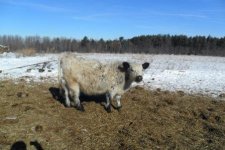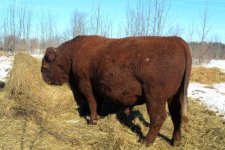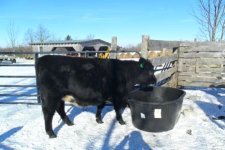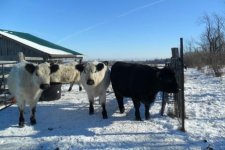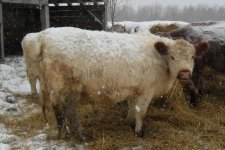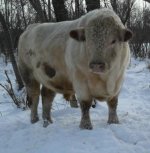hamburgman
Well-known member
- Joined
- Feb 9, 2010
- Messages
- 569
I can see Mill Iron's point, it is the same concept as to why cells can only get so big, makes sense for cows in cold environments also. I notice that from South Dakota on north cows tend to get bigger with many Canadian cows being monsters compared to many midwestern cows.
I agree with finding the right cow for the right environment. Had a professor discuss his friend's ranch in New Mexico one day in class. He said the guy never kept a heifer that weaned heavier than 450lbs because those heifers tended to milk to much and not breed back in that environment.
Seems to me that many people have opted for a larger cow than is needed in most environments because they are chasing weaning weights.
I agree with finding the right cow for the right environment. Had a professor discuss his friend's ranch in New Mexico one day in class. He said the guy never kept a heifer that weaned heavier than 450lbs because those heifers tended to milk to much and not breed back in that environment.
Seems to me that many people have opted for a larger cow than is needed in most environments because they are chasing weaning weights.

